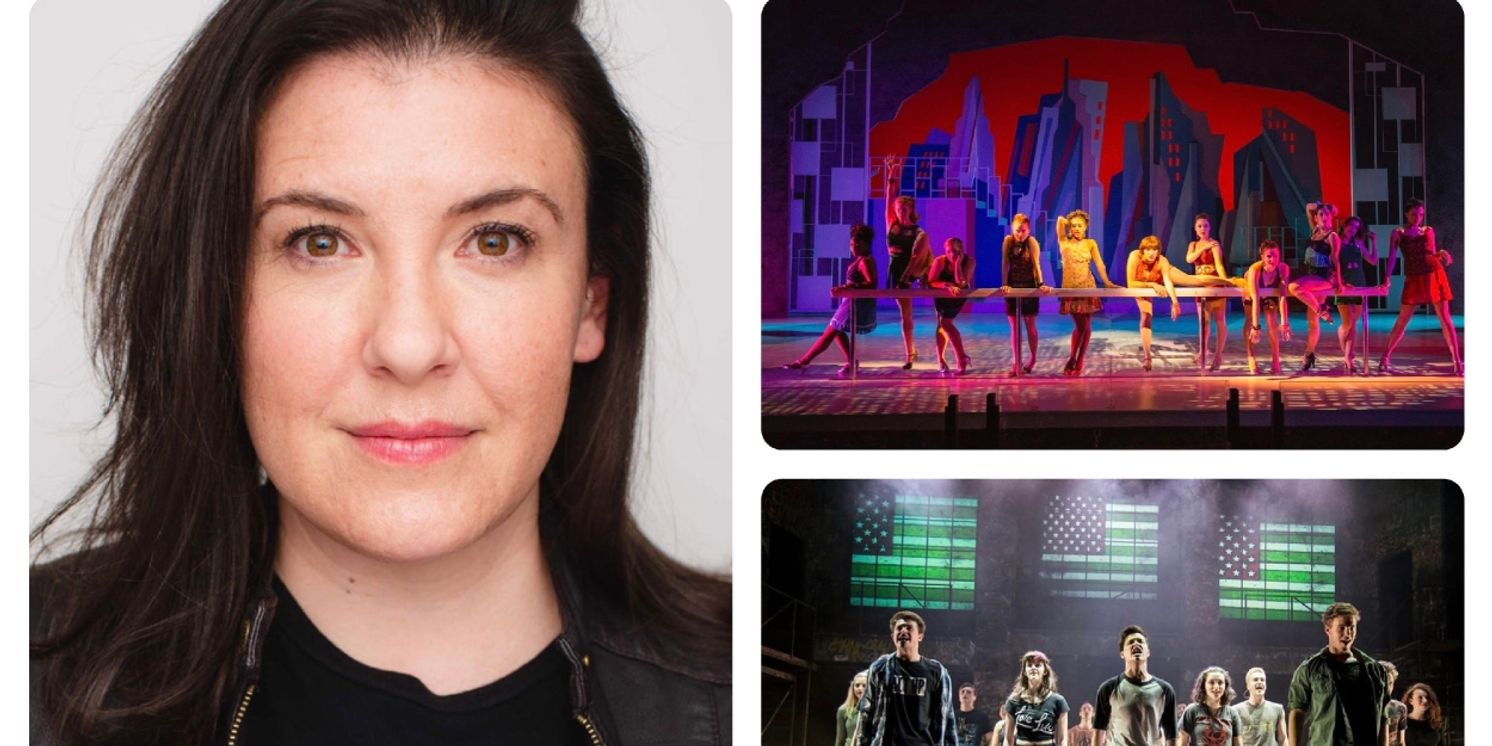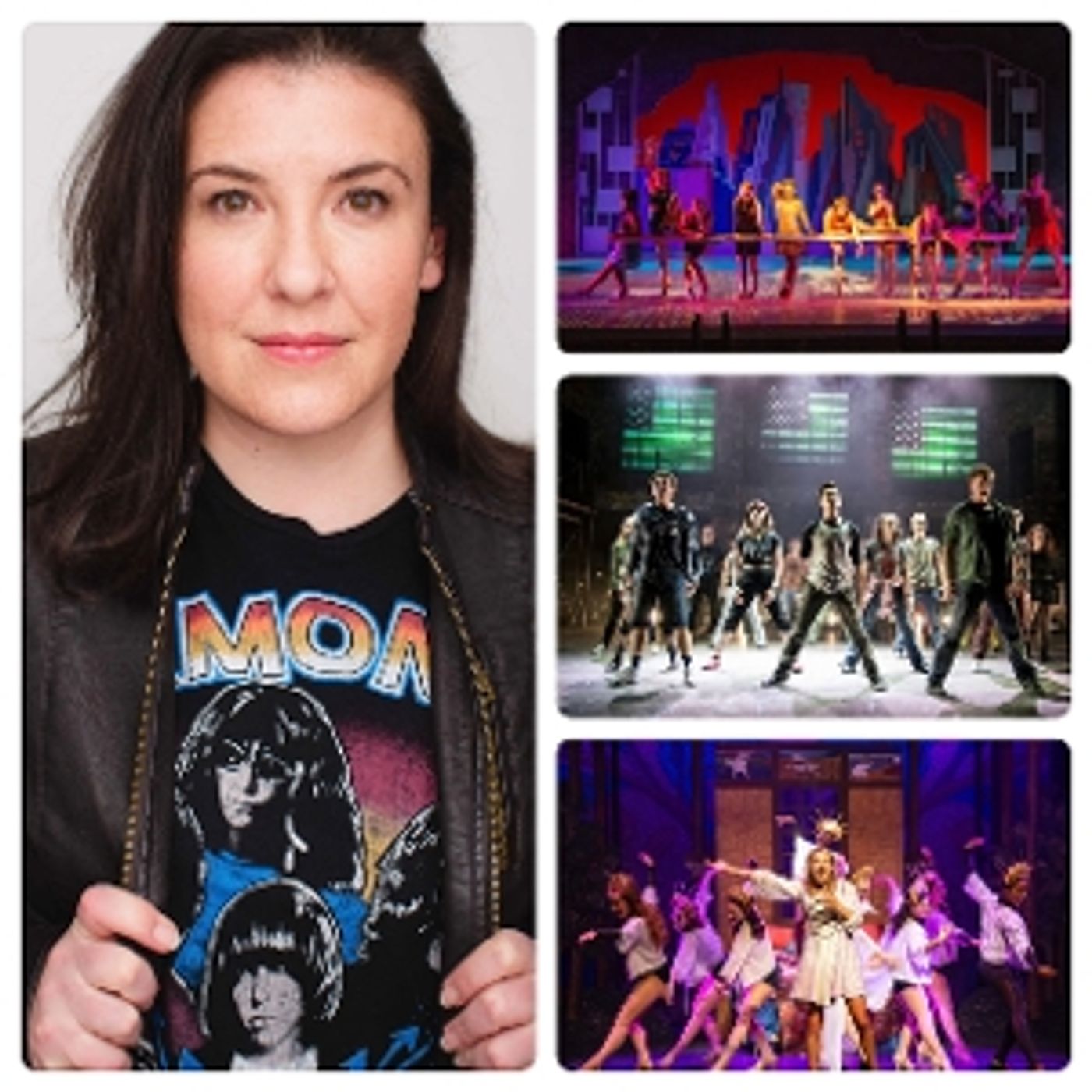Student Blog: Meet the University of Utah's Head of Musical Theatre!
Q&A with Erin Farrell Speer


Every musical theatre program has standout qualities. During my personal audition process of over 30 schools, I witnessed an array of these qualities first hand. Proximity to theatre districts, agent signing statistics, masterclass opportunities, and varying credit requirements are just a few of the qualities that most schools boast. The most appealing quality to me, however, is outstanding faculty. A theatre program is nothing without passionate faculty who push students to be the best version of themselves. The University of Utah is incredibly lucky to have Erin Farrell Speer as its new Musical Theatre Program head. As a freshman in the MTP, she has made my class and I feel welcomed into college life, and we are excited about the four years we get to spend with her.
I had the privilege of interviewing Erin about her goals, inspirations, career, and more! So without further ado… let’s get to know the University of Utah’s fabulous new program head!
Q: What drew you to a career in the arts?
A: “I joke that my mom was an aerobics instructor in the early 80’s, and I was bouncing around to pop hits in the womb, so that’s obviously what started it. Then on my third birthday, I declared that I was going to ballet class, and that was truly the beginning of this journey. In all seriousness, I’ve always known that I was arts bound. I was intensely creative as a child and incredibly determined. I was drawn to the creative collaborations, the creation of work, and the joy of expression in the musical form. Dance brought me my love of musical theatre, which led to my first performance degree and work as a director, choreographer and teacher. Doors continued to open, and I just kept stepping through them, learning and growing with each opportunity. All these years later, I’m still here, singing and dancing my way through life. I’m so very fortunate to make my living doing this work, and incredibly thankful for the journey it’s taken me on so far.”
Q: What made you choose the U?
A: “My degrees from Michigan and Penn State are both from a very specific type of institution: big, flagship, public schools with all of the resources and visibility that come with that. Utah is that same kind of university, with so much potential for growth in the Musical Theatre Program. The University is growing at a rapid rate, as is the Salt Lake area, and I felt like it was a good match to my vision for the program. I was excited about the possibilities for growth and change, and to steer this program into its next chapter. There is a phenomenal faculty with tremendous professional credits here in the MTP, and I was excited to join them. Additionally, there was a sense of readiness for new leadership from students and faculty alike. I needed that kind of buy-in to take over a program and chart the course for its next phase. Plus the new facilities and studios here are beautiful, we have Pioneer Theatre Company and Artistic Director Karen Azenberg in residence here, and a brand new theatre space opening soon. Last, I’m a West Coast gal (born and raised in Los Angeles), and the mountains in the West feel like home. While leaving my students, colleagues and the program we built at UNC Greensboro was incredibly challenging, this felt like the next right step for me. It’s been a very good fit so far, and I’ve felt incredibly welcomed and valued as a member of this faculty.”
Q: What are your top three goals for the MTP?
A: “1 - A restructuring of the performance curriculum – spreading the acting and musical theatre studio courses across the four years of study so students are actively practicing their craft while they learn and apply. There are other small tweaks that have been made to bring us into line with our peer institutions as well. These changes have already been written and are currently in the university’s curriculum process. (Special shout out to my colleague David Eggers for his support in this process!)
2 – Student centered curriculum. My goal is to really serve the students who are here at the U, and who will join us in the coming years. I’ve been working to find space to hear about their varied professional goals and creating changes in the curriculum to reflect the needs of the student population.
3 – Expanding our visibility within the University, and across the state, region and nation. This is a great program with tremendous students, faculty and facilities, and I want to make sure that it’s not a hidden gem!”
Q: How did the program at your last school grow under your leadership?
A: “Along with my colleague, Dominick Amendum, we built the musical theatre curriculum from the ground up and recruited/trained our first four classes of students together. We went from recruiting mostly in-state students to quickly recruiting on a national level. Thanks to the program size, only eight per class, we were able to focus on each student as an individual and tailor their training in the same way. I’m excited to see the continued trajectory of that program!”
Q: What is your teaching philosophy?
A: “My teaching philosophy is very student centered, and at its most basic, about creating space for students to bring themselves to the work. I don’t have a one-size fits all method for coaching student performers, instead I analyze them as an individual and find ways to come alongside and support them in their training. Truly, I set specific goals and benchmarks for each student based on their areas of growth, and then do my best to supply the tools, knowledge and experience to meet those goals. There are multiple pathways to truthful, engaging performance work – so the more I can help students find tools that work for them, the better.”
Q: What was the most challenging part of developing a brand new BFA program at UNCG?
A: “There were so many challenges, from envisioning the program we wanted to build, to writing that curriculum and getting it passed through the University committees, recruiting our first few classes, navigating the start of the pandemic during our first year of enrollment, learning how to make musical films when production was put on hold for Covid-19, and then on to navigating the impacts of a rapidly growing program on the resources of the School of Theatre and the College of Visual and Performing Arts. I was so thankful for the things I had learned about academia at both Michigan and Penn State, which I drew on daily as we navigated whatever life threw at us. There were many challenges, and the work was hard, but I’m so very thankful to have the opportunity to build from the ground up. I’m a better educator and administrator for everything I’ve learned along the way, and I’m looking forward to the new challenges ahead.”
Q: What has been one of your favorite moments of your career?
A: “I’ve been so fortunate to have opportunities to work on Broadway, off-Broadway, at regional theatres, and on film. I can also think off the top of my head of several productions that I’ve directed where I felt like I really grew as an artist – they glimmer in my mind. Building the program at UNCG is right up there, too. But I’d have to say that my favorite moments of my career are the people with whom it’s brought me into orbit. Those relationships, forged in the fires of creative process, are essential and lasting. This work has brought some of my most treasured friends into my life, and for that I am so very thankful.”
Q: What do you hope to add to the MTP and what do you hope to keep the same?
A: “Most of my tweaks to the program are a reflection of what’s happening in the industry. There’s a great foundation here that I want to leave alone, and amazing faculty and staff who have been here doing this work. I intend to value and celebrate their contributions while steering the program into 2023 with a more specifically scaffolded acting and musical theatre studio curriculum. This includes the introduction of Acting for the Camera as a program requirement, starting next academic year. In this digital age, it’s imperative that students are able to film, work on camera, and edit. Our curriculum must reflect what it means to be a working artist in the 21st Century, where musical theatre performers are also directors, producers, writers, filmmakers, choreographers, music directors, teaching artists, etc…”
I am so excited to witness Erin’s vision for the MTP come to life, and I know that our Department of Theatre at the University of Utah is so grateful to her for her hard work, kindness, and dedication.
Videos


